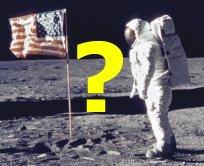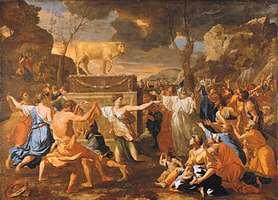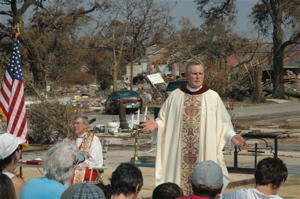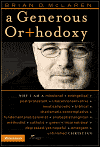Mr. Bennett's Virtue
 Over the last twenty-five years, conservative politicians have successfully waged a campaign to demonize the word "liberal," as representing a political/philosophical position which is anti-family, anti-life, and which promotes vice, immorality, and the tolerance of crime. This has been an effective political strategem, attracting large numbers of evangelical Christians to the Republican party, and is viewed by many as the reason George W. Bush was elected twice (or perhaps more accurately, elected one and a half times). The downside to painting oneself virtuous and your opponent an immoral snake, comes when the paragons of virtue are caught doing things that seem, well, immoral.
Over the last twenty-five years, conservative politicians have successfully waged a campaign to demonize the word "liberal," as representing a political/philosophical position which is anti-family, anti-life, and which promotes vice, immorality, and the tolerance of crime. This has been an effective political strategem, attracting large numbers of evangelical Christians to the Republican party, and is viewed by many as the reason George W. Bush was elected twice (or perhaps more accurately, elected one and a half times). The downside to painting oneself virtuous and your opponent an immoral snake, comes when the paragons of virtue are caught doing things that seem, well, immoral.Since I have recently written about both abortion and racism, I found these two subjects perfectly wed in today's news. William Bennett, former Education Secretary under Reagan, Drug Czar under Poppy Bush, and more recently a self-appointed moral guardian of our nation's youth through his Book of Virtues, fell headlong into a hornet's nest of outrage over comments he made Wednesday on his radio program. Here are his comments:
BENNETT: I do know that it's true that if you wanted to reduce crime, you could -- if that were your sole purpose, you could abort every black baby in this country, and your crime rate would go down. That would be an impossible, ridiculous, and morally reprehensible thing to do, but your crime rate would go down. So these far-out, these far-reaching, extensive extrapolations are, I think, tricky.
(For an audio clip of this statement in its context you can go to Media Matters)
Mr. Bennett is now trying to "spin" these comments, but he will have a difficult time explaining the words I placed in italics, "but your crime rate would go down." I have no doubt that Mr. Bennett abhors abortion, and was engaging in a thought experiment, but his statement reveals the underlying racist assumptions of many (if not most) white Americans. It is definitely racist to say that crime would be reduced if blacks were aborted, imprisoned, deported, etc. The moral of this story, and one which Mr. Bennett might include in a revision of his Book of Virtues, is that we are all sinners, and sin affects our mind, our presuppositions, and our politics. The danger in positioning yourself or your organization as virtuous and your opposition as immoral, is that one day those words will come back to haunt you as you tumble from your "high ground" to become an object of ridicule for your hubris and hypocrisy.















